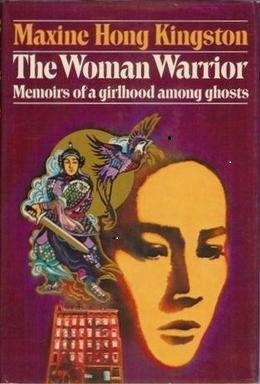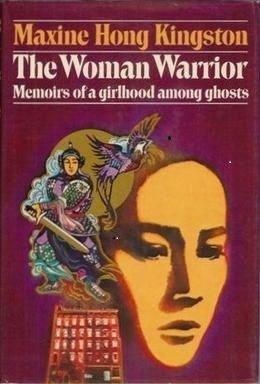《女武士》:原著即译本
邢淅璇

《女武士:回忆我在鬼魂间度过的少女时代》是一本很不一样的书。尽管作者汤婷婷是用英文写的,也给是写给英文读者看的,但这本书本身包含了很多翻译元素。讲古和传说,花木兰和岳飞,赤脚医生和“大六”(大佬)……这些名词和故事本来只存在于中文口语语境中,现在被翻译进了文学领域,介绍给了更多的读者。这种独特的文化翻译使这本书大受欢迎,也给它带来了不少差评。它被质疑是否代表了真实的中国文化以及是否真的有权代表,而质疑者大多数是中国学者。他们认为这本书是在用典型的东方元素来吸引西方读者的眼球,从而加深了文化的刻板印象,扭曲了中国的神秘与陌生。
然而,即使先按下作者有没有义务去照顾到读者的想法这个大辩题不谈,这些质疑的矛头也指错了方向。汤婷婷本就不应该划入一个单一的文化谱系里。她作为移民的女儿,新大陆上的第二代,成长于一个文化双语环境。用非黑即白非此即彼的系统来给她贴标签本身也是一种刻板印象。她既不是来自西方的东方主义者,也不是中国文化代言人。书的题目写得很清楚,这是一本回忆录。汤婷婷通过回忆的视角,以梦境般的氛围、魔幻的讲古故事、碎片化的结构和各式各样的符号描绘出一种独特的真实。她无意堆砌文化符号去吸引眼球,只为描述美国华裔这个少数群体的经历。他们往往被文学忽视,而他们的经历值得被关注。
从某种程度上来讲,《女武士》受到的关注可以被看做少数群体文学 (minor literature)的胜利。Deleuze和Guattari在分析少数群体文学时指出 : “一切都与政治有关“,因为“它狭窄的空间使个体兴趣被直接联系到政治上去。”因此评论家会忽略了书中亲密而强烈的自我剖析的部分,只着眼于文化政治。他们批判它是在指桑骂槐,把它当做了东方主义的替罪羊,本质是泄对东方主义的愤。
唐人街里不同文化间的互动创造了一个五光十色的世界;不同文本间的互动也可以帮助我们更全面的理解这本书。这本书被翻译“回”中文过,也正如Benjamin所说的,“原文内核中的特殊意义在翻译中展现”。异国风情被翻译成中文后成了陈词滥调,骇人听闻成了夸大其词,因为它们本不具有“可译性”,只能存在与英文语境。然而,当它们被筛走后,在童年、贫穷、家庭和神经质间的自我身份诉求从字里行间显现出来。这才是“内核中的特殊意义”。“什么是中国传统,什么是电影?”这些绝对私人的部分才是最普世的,具有不受语言限制的力量,是上述质疑的又一反击。
难道解读内心的冲突并寻找表达的词汇的过程不也是翻译的过程吗?《女武士》就是一部翻译之作。在表达方式和含义间、符号表意和本质间挣扎。如此看来,难道每个作家不也都是翻译家吗?他们直面从每个人性格深处涌出的差异,尽管那差异已自巴别塔的坍塌起创造了无尽的误解,他们还在追求一种普世的交流。汤婷婷也是一个女武士,她也从蛮夷之地带来了自己的歌。这首歌来自她在鬼魂间度过的少女时代,被翻译得很好
[avatar user="oxing" size="thumbnail" align="left"]Olivia Xing[/avatar]
[bg_collapse view="link" color="#4a4949" icon="arrow" expand_text="译者注" collapse_text="Hide" ]
我第一次读《女武士》时就被它迷住了。那些明明是我从小听过的故事被巧妙地编织,讲了一个我并不熟悉的经历。从小生长在中国的我虽然并非美国华裔,但我读懂了她困于两个文化间所有的挫折与幻想。所以我在看到那些负面评论后想要竭力维护它。
但是,我支持这本书并不等于我支持文化刻板印象和简化的人物形象。事实上我很反对电影和时尚界把文化梗随意拿来,象征性地使用使用。那么,怎么样才是正确的尊重文化的使用方式呢?我认为,很重要的一点是它们要有灵魂,要从人性和个性出发,要有更大的主题支撑,比如爱情死亡或者自我认同等。以最近很有争议的小美人鱼真人版的选角为例,说到底,这个童话故事最动人的地方不是爱丽儿的肤色,而是她敢于追梦的勇气.
[/bg_collapse]
Woman Warrior: A Work of Translation
by Olivia Xing

Woman Warrior: Memoirs of a Girlhood among Ghosts is a different book. Although it is written by Maxine Hong Kingston in English and read mostly in the English-speaking countries, it involves elements of translation, in cultural terms. The talk stories, the legend of “Fa Mu Lan”, “barefoot doctors” and “the Big Six” ... These idioms and traditions which have only existed as oral accounts in the Chinese context are translated into literary treasures and introduced to a broader audience. This distinctive characteristic of cultural translation brings along itself phenomenal popularity but also simultaneously brings about negative reviews questioning its cultural authenticity and its representative legitimacy. The critics, mostly Chinese scholars, accused it of using the “typical” oriental symbols to win western readers’ favor. By doing so, it stereotypes the culture and distorts the foreignness.
However, despite the ongoing debate on writer’s “ethic” to take readers’ opinion into consideration while writing, the spearhead of those criticisms is pointed in the wrong direction. Growing up culturally bilingual as an immigrants’ daughter, the second generation in the new land, Kingston should by no means categorized into the single cultural profile, which is also a stereotypical label created by a binary system. She is neither a western orientalist nor a representative for Chinese culture. As claimed clearly in the title, the book is a memoir. The dreamlike atmosphere, the illusionary talk stories, the fragmented structure and the assorted symbols taken together imitate a unique version of reality through the lens of memory. Kingston has no intention to lump together instances of cultural semiotics to attract eyeballs, but rather portrays a noteworthy experience of Chinese-Americans, a minor group not often called by name in literatures. To some extent, the popularity that The Woman Warrior has received can be considered as a victory of minor literatures, one characteristic of which is that "everything in them is political.” Because, according to Deleuze and Guattari’s interpretation on the minor Literature, “its cramped space forces each individual intrigue to connect immediately to politics,” the critics then consequently neglect the intimate and intensive self-analyzing part of the book. Their condemnation is scapegoating and is “scolding the locust while pointing at the mulberry” (a Chinese way of saying “abuse a person by ostensibly pointing to someone else”), to air their grievances towards the widespread conception of Orientalism.
The interculturality in Chinatown creates a motley world; the intertextuality leads to a more comprehensive unfolding of the text. The book is also translated “back” in Chinese, and as Benjamin claims, “a specific significance inherent in the original texts expresses itself in their translatability.” Translated to Chinese, the exotic becomes cliché and the shocking becomes exaggerating. Those elements after all lack a certain measure of translatability and can only survive in the English context. However, at the same time when they are washed off, the “inherent specific significance,” which in this case is the identity-seeking amidst childhood, poverty, family ad insanities, shines out of the text. “What is Chinese tradition and what is the movies?” Those intensely personal moments prove to be universal and always compelling regardless of the language, which also counters the aforementioned criticism.
Isn’t this process of deciphering the internal conflicts and searching for the vocabulary to communicate also translation? The book as a whole is a work of translation, wrestling with the utterance and the interpretation of meaning, with the verbal sign and the essence of the word. Then, isn’t every writer a translator? They confront this otherness, which emerges from the depth of personality in every human being and which has, since the collapse of The Tower of Babel, caused endless misunderstanding, in pursuit of a universal communication. Maxine Hone Kingston is another woman warrior who brought her own song from a savage land, a girlhood among ghosts. It translated well.
Works Cited:
Kingston, Maxine Hong. The Woman Warrior: Memoirs of a Girlhood among Ghosts. London: Picador Classic, 2015. Print.
Translated by Olivia Xing
[avatar user="oxing" size="thumbnail" align="left"]Olivia Xing[/avatar]
[bg_collapse view="link" color="#4a4949" icon="arrow" expand_text="Author’s Note" collapse_text="Hide" ]
Born and raised in China, I was fascinated by The Woman Warrior when I first read it. It ingeniously uses the stories that I grew up hearing to depict an experience I am not familiar with. Although I am not a Chinese American, I still share all her frustration and hallucination from being in-between cultures. Therefore, I am very defensive about this book against certain criticism.
However, my support of this book doesn’t mean that I support stereotyping cultures and creating cultural tropes. In fact, I’m very against taking random cultural elements lightly as tokens, which films and fashion brands have always been doing. Then, how to appropriately use the elements but not appropriate them? I think what’s important is to have a soul, a starting point from humanity and individuality, and a backbone story with a bigger theme such as love, death, and identity. To take the recent controversial casting of the live action Little Mermaid as an example, at the end of the day, what’s most compelling about this fairy tale is not Ariel’s skin color but her bravery to chase her dream.[/bg_collapse]